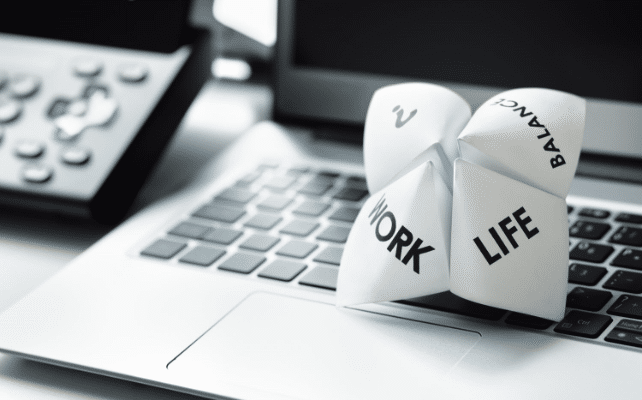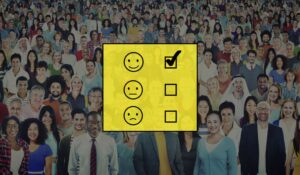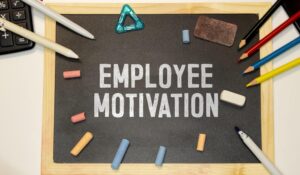Self-care is no longer a term to describe the special wellness practices of a coworker or friend who is dealing with a serious health issue. It’s being recognized more and more as an essential element of employee engagement, productivity, and overall satisfaction with life.
Organizations are increasingly buying into this concept. From encouraging energizing snacks and lunches away from your desk to offering mindfulness classes or wellness workshops, companies are taking steps toward helping their employees shake off motivation killers like anxiety and stress and giving them the tools to thrive.
Every generation seeks a healthy work-life balance, but it’s millennials who most demand it from their employers. By 2025, millennials will comprise three-quarters of the global workforce, so in today’s employment market, creating a healthy work-life balance is a compelling competitive advantage.
What Self-Care in the Workplace Looks Like
At the heart of self-care are the individual’s relationship and connection to self. With respect to your job, it means that you’re attuned to and understand what you need to be your most constructive, effective, and authentic self.
Therefore, rather than narrowly defining self-care solely in terms of physical health (although that is an important piece of the equation), employers and employees should expand the definition to include care of the mind, emotions, relationships, the environment, time, and resources.
Self-care flows from an intention to stay connected to yourself and your overall mission: What can I do to make sure I can make the positive contribution I hope to make? From that perspective, self-care is the currency of workplace engagement and productivity.
To build employees’ self-care awareness and management skills, offer in-service training and resources on topics such as the following.
- Harnessing your inner critic
- Managing time, money, and resources
- Celebrating accomplishments
- Strengthening healthy and supportive relationships
- Recognizing the link between workspace environment and productivity
- Recharging energy levels
As our work lives get busier, self-care becomes increasingly important to being effective and having a positive impact on an organization without sacrificing our health or relationships. By incorporating self-care in our day-to-day work lives — especially in times of stress — we can all become our most constructive, effective, and authentic selves.
How to Assess Self-care Needs in the Workforce
Ask employees what they want, and really listen to the answers. Do they want to improve social interaction through a company outing? Or would a nuts-and-bolts session on managing a retirement fund, or the ability to use flextime to care for an ailing parent be more in line with their needs?
Individualize self-care programs as much as possible. For example, to a millennial improving financial wellness might mean figuring out how to handle a crushing college loan debt, while older workers are more likely to be concerned with paying for their children’s college educations and preparing for retirement. Adapt your offerings to meet employees’ differing circumstances.
These efforts may not always pay off immediately in terms of reduced health care costs. But they can create happier, more productive, more focused employees who are less stressed and less likely to miss work or leave the company, which has many benefits to the organization, including cost savings.
Leveraging Technology to Boost Participation
The success of self-care and other employee engagement and productivity-boosting programs hinges on employee participation, especially within organizations with workforces on the go. How can you boost participation? Technology can make it easy and convenient for employees to learn about and engage with these programs – what could be easier and more convenient than an all-in-one mobile employee communications app that is customized to your brand and designed specifically to address your employees’ needs and preferences?
An effective mobile employee communications app gives you four essential capabilities, allowing you to:
- Hear your employees. Get ideas, insights, and opinions with instant feedback surveys and polls. Keep your finger on the pulse of your culture so you can stream future content that hits home.
- Inform & inspire. Keep employees plugged in with interactive content, leadership messaging, announcements on company-sponsored volunteer opportunities or other group activities, or new product/service training and advancement opportunities.
- Reward & recognize. Reward and recognize employees who view and share content, using points and badges that can be redeemed for prizes and certificates. An effective mobile app can create a group of brand ambassadors.
- Analyze results. View employee engagement levels, satisfaction, knowledge scoring, content advocacy, app usage, gamification stats, and more so that you can adapt programs for maximum performance.
Summary
If your organization needs a better way to communicate with employees about your self-care programs, the HubEngage mobile app is a convenient, effective, and easy way to make that happen. Want to explore firsthand how hubEngage can help you maximize your employee engagement program to unleash the power of an engaged workforce? Schedule your free demo today.














